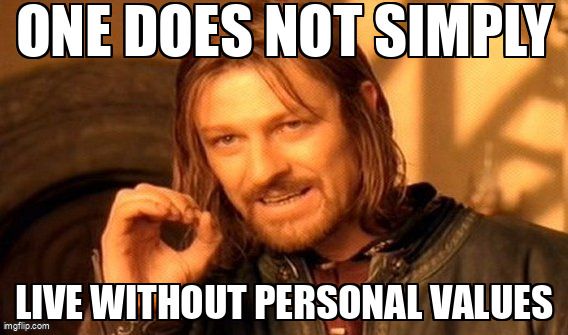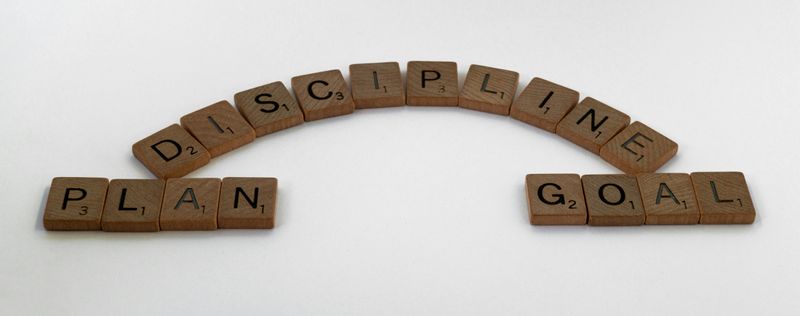Have you ever fallen in to the traps of procrastination or a lack of focus, even when you have all the motivation to get started and finish your tasks?
Let’s say you have a big exam coming up and you know that the earlier you start studying for it, the better you will perform.
But you just don’t feel like doing it!

Why can’t the importance of the exam make you study?
What can you do to get yourself to do hard things, especially when you don’t feel like doing them?
The answer is the art of self-discipline! With self-discipline, you can learn how to overcome obstacles and achieve more than you ever have before.
What Is Self-Discipline?
Self-discipline is the ability to make yourself do things when you should, even if you don’t want to do them.
Part of self-discipline is building the habit of controlling your actions so that they’re geared toward positive outcomes.
Self-discipline can be applied to all areas of your life, and you can practice it in the following ways:
Moving your body more by having a fitness routine.
Practicing self-care every day.
Substituting mindless scrolling time with intentional screen time.
Learning a beneficial skill.
Working on a budget to better manage your finances.

Self-discipline is self-caring.
— M. Scott Peck, The Road Less Travelled: A New Psychology on Love, Traditional Values and Spiritual Growth, 1978
Self-discipline goes beyond motivation because it takes consistent action over time to get better at it.
Let's look at how you can build self-discipline through identifying your values and delaying gratification.
Identify your values
It's important to know what you value because you determine your priorities — you get to choose the things that are most important to you.

Good and Bad Values
Good values make your life and the lives of people around better. Bad values harm you and others.
It makes sense to choose values that you believe are good, but there is a thin line between good and bad values. To make sure you’ll be living with the best intentions, it's best to know where that thin line is.
Good Values

Evidence based — based on outcomes of actions. Sticking to your plans may feel hard but good results are worth it!
Constructive — based on having good intentions and outcomes, like practicing boxing because you value fitness and discipline.
Controllable — based on outcomes in your control, like how much effort you put into working if you value hard work.
Bad Values

Emotion based — based on feelings, like if doesn’t feel good doing something, it must mean that you shouldn’t do it.
Deconstructive — based on ill intent, like practicing boxing so that you can punch people.
Uncontrollable — based on factors that aren't in your control. If you value money, you may not be able to control exactly how much of it you'll get.
Start by picking out 3-5 values that you can focus on and then build on those as you start to grow. Here is a great list of values to help you get started!

Quiz
Taylor is a social media content creator. What are some good values to have as a content creator? Select all that apply:
Delay Gratification
A big part of self-discipline is holding out for the good and success that is coming in the future by foregoing the gratification of the now. That's called delaying gratification.

Think of delaying gratification this way: if the icing is your favorite part of the cake, delaying gratification is eating the sponge first, so that you can enjoy the icing at your own pace last.
It's not always that straightforward because it's human nature to want to enjoy the things we love the most first, without having to face a challenge.
But you can still build your delaying gratification muscles in the important areas of life, like: 
Food — opting for healthier snacks because you want to be healthier in the long run.

Physical pleasures — abstaining from smoking, drugs, and alcohol to prevent addictions.

Social interactions — sticking to your goals and values instead of doing things to fit in with the crowd.

Finances — saving more and spending less than you earn.

Achievement — consistently working hard on your goals in favour of long-term achievement.
By minimizing your impulses to indulge in the now, you have better chances to succeed in reaching your goals.
For example, if you want to improve your performance at work, how might you delay gratification to meet that goal?
A. Reading your emails before sending them.
B. Leaving work early so you can get more rest.
C. Choosing a short walk on your break instead of mindless scrolling.
D. Avoiding distracting chats with coworkers.

Quiz
Select all that apply:
Why Self-Discipline Matters
Most of us were taught that discipline comes with rigidity and rules, but self-discipline is really a way to ensure that you're making the most out of your life.

Think of self-discipline as the armor around the most important things in your life. It comes with invaluable benefits such as:
Reduced anxiety
More happiness
Better resilience
Long-term goal achievement
With self-discipline, there's only one direction for growth and it's up! 👆
 Photo by Brett Jordan on Unsplash
Photo by Brett Jordan on UnsplashTake Action
Self-discipline is really about making choices that your future self will thank you for. Living with self-discipline is the ultimate way to live!

Your feedback matters to us.
This Byte helped me better understand the topic.
